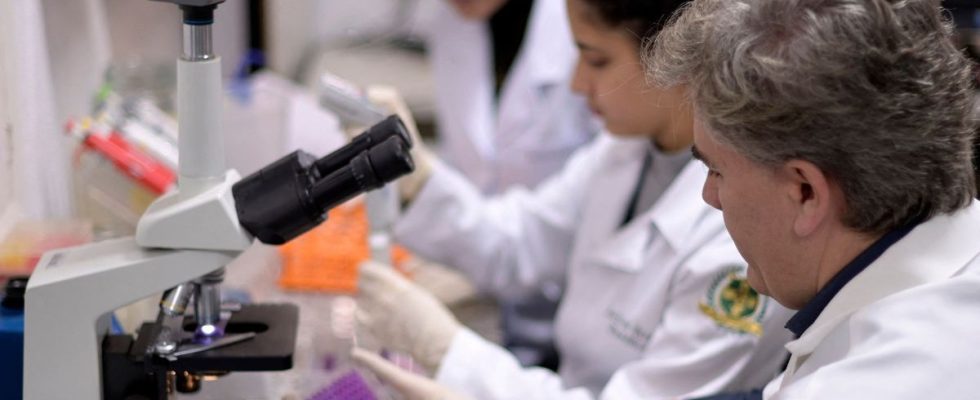Published on
Updated
Reading 2 min.
Inhibiting the addictive effects of cocaine or crack to prolong the abstinence of users who are struggling to quit: this is the objective of “Calixcoca”, a promising therapeutic vaccine developed by Brazilian scientists.
This project won a prize of 500,000 euros last week from the pharmaceutical company Eurofarma intended to finance innovative solutions with “high impact” in the health sector.
A therapeutic vaccine for those who do not want to dive again
This is not a miracle anti-cocaine recipe intended for the entire population. Unlike preventive vaccines, which aim to prevent diseases from reaching the body, therapeutic vaccines are used to treat existing health problems.
The Calixcoca”helps addicted people produce antibodies that stop the drug from acting on the brain“, explains psychiatrist Frederico Garcia, coordinator of this project led by the Federal University of Minas Gerais (UFMG).
Concretely, this vaccine aims to block the sensation of pleasure that cocaine arouses when it acts on an area of the brain known as the “reward circuit”.
By interrupting this cycle which leads to compulsive consumption, and therefore to addiction, it “increases the chances” of prolonging the abstinence of those who wish to quit, explains the researcher.
In animal tests, scientists observed significant production of these anti-addiction antibodies, and few side effects.
The vaccine also had positive effects on mouse fetuses. This could contribute to the treatment of pregnant women suffering from addiction problems to cocaine or its derivatives, such as crack.
Other similar research projects were carried out in the United States but were unsuccessful due, among other things, to insufficient results during clinical tests on humans, which are due to begin soon in Brazil.
A cheaper and easily stored vaccine
“Calixcoca” is the first project of this type in Latin America. “If clinical tests show it to be effective, and if it is approved by health regulator Anvisa, it will be the world’s first anti-cocaine and even anti-drug vaccine used as medicine.“, assures Frederico Garcia.
Unlike other vaccines which use biological components, the antigen, the substance which triggers the immune reaction to produce antibodies, is made from chemical components designed in the laboratory. With two advantages: manufacturing costs less and it is not necessary to respect the cold chain for transport.
“There is not yet any specific approved (drug) treatment to combat cocaine or crack addiction. Today, patients are offered psychological monitoring, social assistance and possibly detoxification treatments.“, explains the psychiatrist.
In addition to strategies already in place against addiction
The vaccine would be a complement to these multidisciplinary strategies, helping for example to avoid immediate relapses after a stay in treatment.
Even if clinical tests prove conclusive, it is “not a panacea”: “Calixcoca” is intended for patients “in abstinence who are determined to remain so“, he emphasizes.
Frederico Garcia’s team hopes to help reverse the trend of a “sad statistic”.
According to data from the United States National Institute on Drug Abuse (NIDA), one in four regular cocaine users becomes addicted. And only a quarter of patients wishing to free themselves from this addiction succeed after five years of treatment.
Expectations around “Calixcoca” are high in Brazil, the second country where the most cocaine is consumed in the world after the United States: more than 3,000 people have already volunteered for clinical tests.
